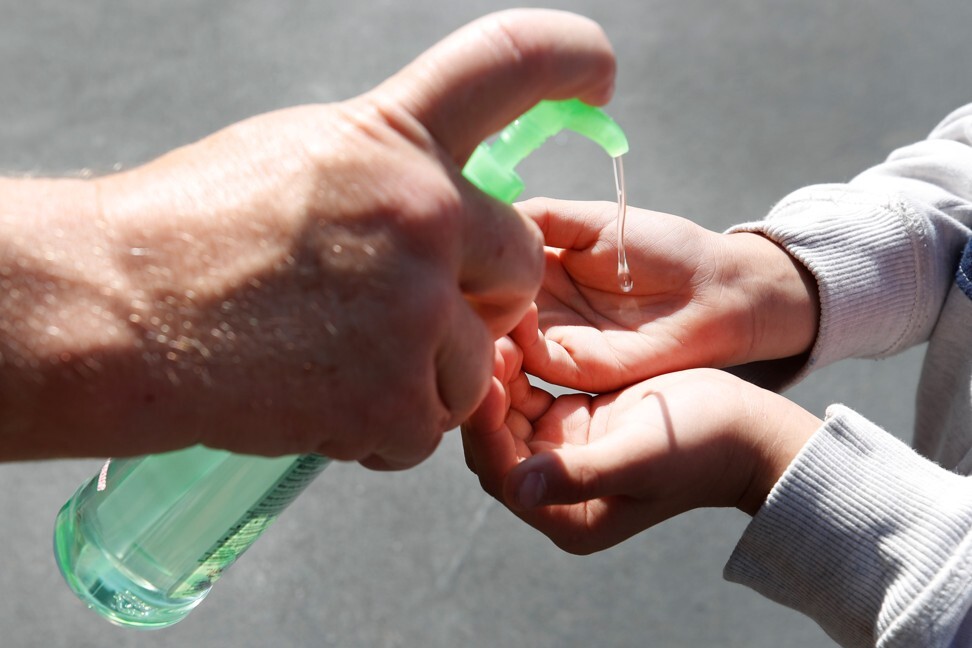
Is a flu shot worth it? Yes, more than ever this year, respiratory medicine specialist says
- Governments worldwide are fretting that the coming flu season will erode immunity and predispose thousands more to coronavirus
- Getting a regular flu shot this year could be the best thing to slow the pandemic’s spread until we have a vaccine for it, Dr Raymond Tso says
Everyone is sick of 2020, and millions are sick in 2020. The coronavirus pandemic has been raging worldwide for almost nine months and we’re all suffering from pandemic fatigue. But, just as with regular influenza or any kind of illness, if we lower our defences, infection will come barrelling in.
As exhausted as we all are with this, as bored as we are of home working and home schooling and the dearth of a social life, as raw as our hands may be from endless sanitising, now is absolutely not the time to drop our defences. Indeed, we need to shore them up further, not just to keep Covid-19 out, but the common flu, too.
Seasonal flu is especially dangerous for the same groups that are worse affected by coronavirus: the elderly, those with underlying medical conditions and especially people with respiratory illnesses such as chronic obstructive pulmonary disease (COPD) or asthma.
These people “are at greater risk as their baseline respiratory status and immune system are weaker,” says Dr Raymond Tso, a specialist in respiratory medicine in Hong Kong. “As cities reopen in the coming autumn and winter, we will see an increase of Covid-19 cases and seasonal flu.”

Governments worldwide are fretting about the coming season for exactly this reason: that seasonal flu will erode immunity and predispose thousands more to coronavirus.
So, how to protect ourselves? Well, a lot of the same old, same old: remain vigilant about social distancing; keep washing your hands; keep wearing your masks; but also, in all the hype as the world races to find a coronavirus vaccine, don’t forget we have one for seasonal flu already.
Covid-19 affects large numbers of people, but so too does influenza. Around 9 per cent of the world’s population is affected by influenza annually, with up to 1 billion infections. According to the World Health Organisation, there are 3 million to 5 million severe cases, and 300,000 to 500,000 deaths, each year. At the time of writing, there have been 966,000 deaths worldwide from Covid-19 but cases reported stand at 31.4 million, a lot less than 9 per cent of the global population.
Healthy vegan mooncakes, from gluten-free to superfood-packed
“Although flu carries a lower mortality than Covid-19, it still poses a great danger to the elderly and people with co-morbidities” largely because it is so prevalent, Tso says. “It is very challenging for health-care workers to differentiate seasonal flu from Covid-19 given that some of the symptoms overlap.”
You’ll have heard people scoff that the flu vaccine, which was first developed in the 1940s, doesn’t work. But the US Centres for Disease Control is clear that it does. It prevents millions of deaths each year and has been shown to reduce the risk of having to go to the doctor with flu by 40 to 60 per cent.
The elderly, who are eligible for flu vaccination, may stay away from the clinics for fear of Covid-19 infection, and further decrease the flu vaccination rate and increase the potential for widespread infection
A 2018 study suggests that in the three years from 2012 to 2015, flu vaccination among adults reduced the risk of being admitted to the intensive care unit with flu, or flu-inflamed complications, by 82 per cent. If you are protected against seasonal flu, you won’t give it to others – including people whose immunity is compromised, a group we’re all meant to be shielding during the pandemic.

And it’s making a difference: “The overall admission rate with a principal diagnosis of influenza in public hospitals decreased from the peak of 0.91 per 10,000 population to 0.21 per 10,000 population in the same period,” he adds.
Tso worries, though, that this positive trend may dangerously slow down. Because many Hong Kong schools remain teaching online, “there will be a drop in the usual administration of school-wide flu vaccinations, and also, the elderly, who are eligible for flu vaccination, may stay away from the clinics for fear of Covid-19 infection, and further decrease the flu vaccination rate and increase the potential for widespread infection,” he says.
We might not have a vaccine for coronavirus – yet. But we do have one for seasonal flu, and we mustn’t let Covid-19 hysteria muddy the common sense we’d ordinarily apply. Getting a regular flu shot this year could be the best thing to slow the pandemic’s spread until we have a vaccine for that, Tso says.

